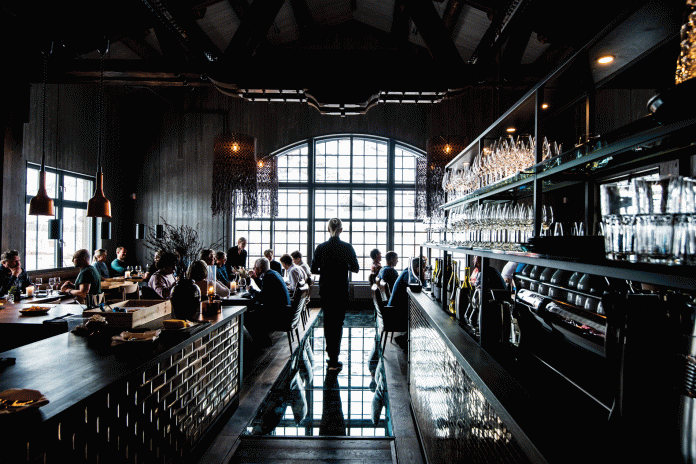There are worse places for a morning coffee than Kahveci Mustafa Amca Jean’s. Sitting on one of the stools in the quiet courtyard off İstiklal Avenue, I realize I’m not the only one to think so: a street cat has found a seat of his own, too, curled up on a cushion beside me in the sun’s gentle rays. A quiet clattering of cups comes from the tiny kitchen in the corner.
“We have a saying in Turkish,” says Duygu Doğuç. “‘Eat sweet, talk sweet.’ If you just want to chat, we drink sweet tea. If you want a serious talk, then we have coffee.”
I’m expecting, then, an earnest conversation with my guide from Istanbul Tour Studio as we sip strong, bitter cups of Turkish coffee, but it never comes. In fact, as I reach the end of my drink, Duygu turns the cup upside down on the saucer with a wry smile. “Okay, let’s have a look.” She flips it back over and peers inside, trying to divine shapes from the formless brown sludge. No luck. “Ah, I don’t know. Did you know there’s an app for reading coffee grounds now, anyway?”
This should hardly come as a surprise. As Duygu explains, the digitization of kahve falı — fortune-telling with coffee grounds — is just another chapter in the long, winding tale of Turkish coffee culture. It’s a story that goes back centuries: the first coffeehouse in Istanbul was opened in 1555 by two merchants from Damascus, who’d brought beans from the Arabian Peninsula. There, in the mountains of Yemen, coffee was sipped day and night by Sufi mystics to induce spiritual states. By the end of the 1500s, it had taken on a more earthly purpose as the drink du jour in Istanbul — then Constantinople — and coffeehouses had opened everywhere. Reserved for men only, they became somewhere to socialize away from the ears and eyes of the mosque, promising gossip, games and good coffee. Not that everyone was on board with the caffeine craze: Sultan Murad IV felt so threatened by the popularity of coffee in the early 17th century that he prohibited it, along with alcohol and tobacco, and even executed the few who broke the ban.
“Everything happened in Istanbul’s coffeehouses,” says Duygu, finishing her drink. “Actors, storytellers, puppeteers — they’d all come to perform, and tradesmen would often stay there all day in case anyone in the area needed their services. It was a bit like a job centre.”




